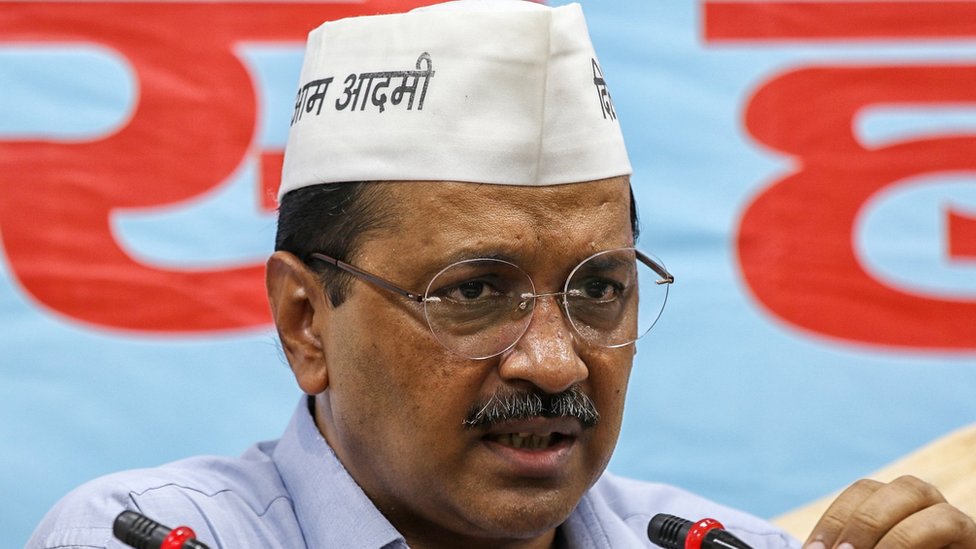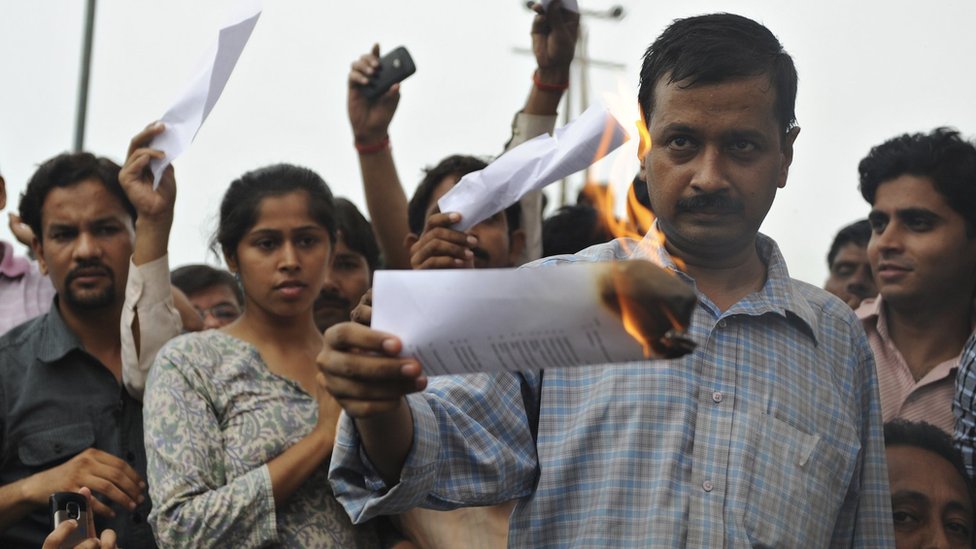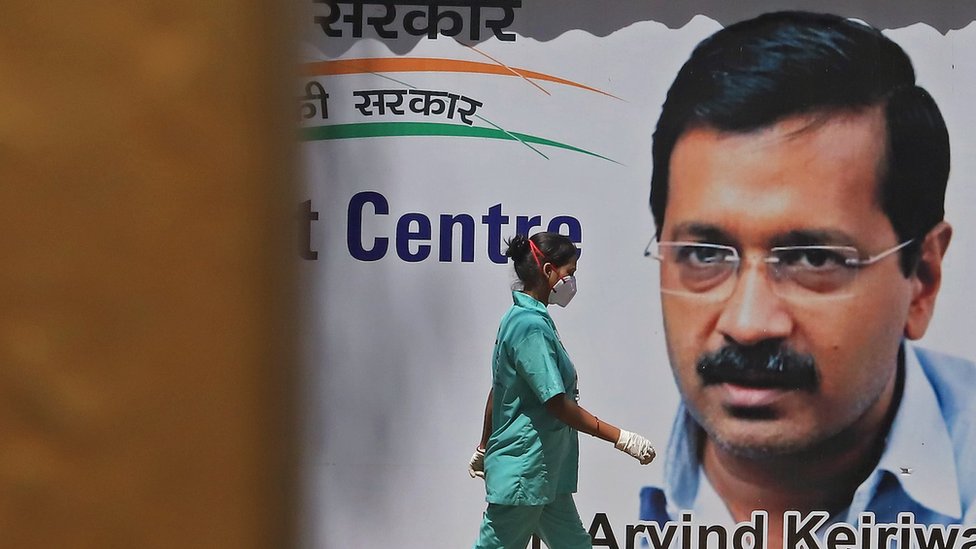Arvind Kejriwal: What you need to know about the Indian election candidate
- Published
A quick guide to Arvind Kejriwal

Arvind Kejriwal made his name as an anti-corruption campaigner, but now Delhi’s chief minister is accused by federal agencies of corruption himself.
Here’s what you need to know about Arvind Kejriwal as India goes to the polls.
He’s a firebrand Indian opposition leader who is currently in jail
Arvind Kejriwal is currently behind bars on corruption charges which he denies. But this hasn’t stopped the anti-corruption campaigner-turned-politician making himself heard during the election.
Despite his current situation, he has continued to run Delhi from jail. Since his arrest, his wife Sunita Kejriwal has been in the public eye, addressing Delhi’s citizens and reading out letters from her imprisoned husband.
His party has accused Prime Minister Narendra Modi’s Bharatiya Janata Party (BJP) of using federal agencies to target Mr Kejriwal and his colleagues. They say Mr Modi was worried about Mr Kejriwal’s rising popularity - allegations the BJP denies.
He once worked for India’s income tax department

Mr Kejriwal did not set out to be a politician. The 55-year-old graduated from one of India’s most prestigious technology schools as a mechanical engineer before taking a job with the multinational Tata Steel in the late 1980s.
He then worked for the Indian Revenue Service but he decided it wasn’t the life for him, later saying he “left the [income tax] service to serve the nation”.
He won ‘Asia’s Nobel Prize’
Mr Kejriwal started making his name as an activist while he was still a civil servant.
He worked with Parivartan, an organisation which used India’s Right to Information Act to advocate for people’s rights. Its first major target in the 2000s was Mr Kejriwal’s employer, the tax office.
The group was so successful that in 2006 he received the prestigious Ramon Magsaysay Award - often called the Nobel Prize of Asia.
His anti-corruption agitation gave voters an alternative

By 2011, Mr Kejriwal had been working on the fringes of politics for a decade. But it was his support of social crusader Anna Hazare - who was on hunger strike protesting corruption - that would propel him into the wider public eye.
He used his new fame to launch the Aam Aadmi Party, or common man’s party, in 2012 with a promise to root out corruption.
His first term as Delhi’s chief minister lasted just 49 days
Mr Kejriwal’s AAP was immediately popular in the capital, Delhi. In 2013, he won election against longstanding chief minister, Congress’ Sheila Dikshit.
But it was short-lived: he quit after he failed to get an anti-corruption bill passed.
But he used his resignation to his advantage

The resignation was seen as a principled decision, and he was re-elected with a thumping majority in 2015.
Since then, the party has brought in popular policies like subsidised power and water, as well as improved government-run schools in the city.
Meanwhile, AAP members have proved for the first time the party can have success outside Delhi, winning control of Punjab’s state assembly in 2022.
The BJP are eyeing up the capital
The AAP’s rise in Delhi coincided with the shrinking political influence of the country’s main opposition party, Congress. The BJP is now the main opponent, and looking to re-establish a foothold in the capital’s assembly.
But Mr Kejriwal has vowed that “not a single seat from Delhi” should go to Mr Modi’s party in the federal elections. The BJP won all seven parliamentary seats in Delhi in 2019. But the AAP won 62 out of 70 state assembly seats a year later.
Produced by Text Formats. Image credits: Getty Images/Naryan/Bloomberg/Sajjad Hussain
- Published17 April
- Published17 April
- Published24 April